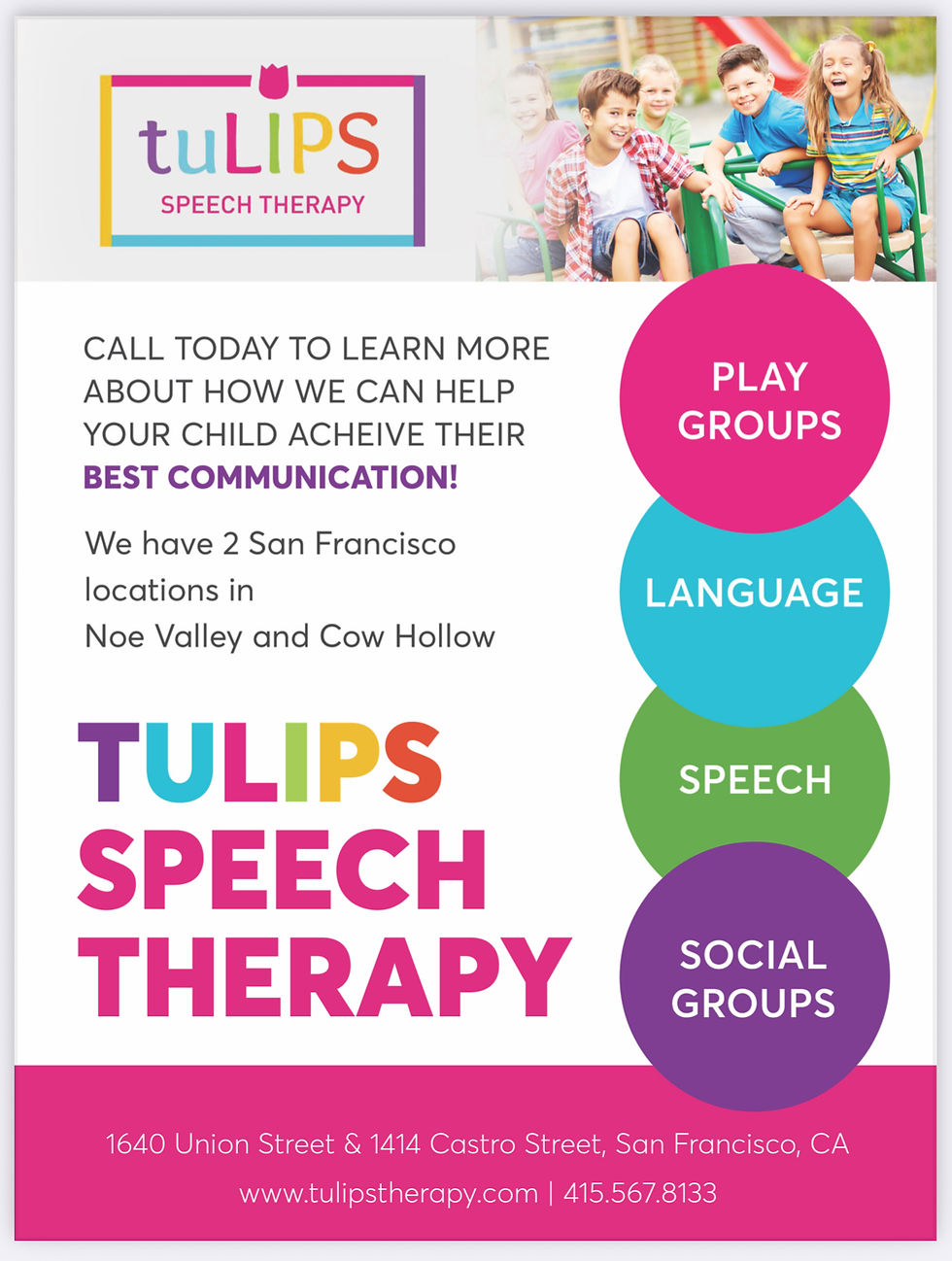Did You Know? Bilingualism Boosts Brainpower – What Parents Should Know About Dual Language Development
- Rachel Verducci
- Sep 10, 2025
- 3 min read

Raising a bilingual child is a gift, but it often comes with questions: “Will learning two languages confuse my child?”, “Is it normal if they speak later?”, or “Should I be worried about mixing languages?”
At tuLIPS Speech Therapy, we’re here to reassure you: bilingualism is not a delay—it’s an incredible advantage. In this post, we’ll explore how dual language development works and why it’s not only normal but beneficial for children.
Myth: Bilingualism Causes Language Delays
One of the most common misconceptions is that exposing a child to two languages causes confusion or delay. Research has consistently debunked this myth. While bilingual children may show slight differences in early language milestones—such as a later onset of first words or temporary mixing of languages—these are not signs of a disorder. They are normal aspects of bilingual language acquisition (Paradis, Genesee, & Crago, 2021).
Truth: Bilingualism Strengthens the Brain
Bilingual children are using two systems simultaneously, which enhances cognitive flexibility, memory, attention control, and problem-solving skills (Bialystok et al., 2012). Over time, bilingual kids often develop stronger executive functioning skills than their monolingual peers.
How Speech Therapy Helps
At tuLIPS, we specialize in working with bilingual and multilingual families. We assess both languages and offer culturally responsive therapy tailored to each child’s unique background. Therapy doesn’t aim to eliminate an accent or reduce language mixing—instead, we focus on building a strong foundation in both languages while supporting communication confidence.
Common Bilingual Milestones
Here’s a quick look at what’s typical in bilingual development:
• First words: Often appear around 12–15 months in one or both languages.
• Mixing languages (code-switching): A normal phase and a sign of flexible thinking.
• Vocabulary gaps: It’s common to know some words in one language and not the other.
• Speech sounds: May differ slightly based on language exposure.
The key is to evaluate a child’s total language capacity, not just one language at a time. A bilingual child may know fewer words in each language, but when both are counted together, their vocabulary is often right on track (Hoff et al., 2012).
How Parents Can Support Bilingualism
• Speak the language you’re most comfortable with at home.
• Read books in both languages.
• Avoid pressuring your child to “pick” one language.
• Celebrate both cultures and languages equally.
• If concerns arise, consult a bilingual speech therapist early.
At tuLIPS Speech Therapy, we believe that every voice matters—in every language. Supporting bilingual development isn’t just about language; it’s about identity, culture, and connection. If your child is growing up in a multilingual home and you want support navigating speech or language development, our team is here to help.
📞 Contact us today for a bilingual consultation or screening

📚 Works Cited
• Bialystok, E., Craik, F. I. M., & Luk, G. (2012). Bilingualism: Consequences for mind and brain. Trends in Cognitive Sciences, 16(4), 240–250. https://doi.org/10.1016/j.tics.2012.03.001
• Paradis, J., Genesee, F., & Crago, M. B. (2021). Dual Language Development & Disorders: A Handbook on Bilingualism & Second Language Learning (3rd ed.). Brookes Publishing.
• Hoff, E., Core, C., Place, S., Rumiche, R., Señor, M., & Parra, M. (2012). Dual language exposure and early bilingual development. Journal of Child Language, 39(1), 1–27. https://doi.org/10.1017/S0305000910000759

👉 Book a bilingual consultation today.
Bilingual kids speech therapy dual language development multilingual parenting early intervention language development speech therapist communication support child development parent education language milestones multicultural families speech and language support neurodiversity affirming early speech support back to school speech help support every voice talk to thrive communication matters bilingualism cognitive benefits bilingual therapy services bilingual family resources language delay support toddler speech therapy child communication skills.
.png)



Comments